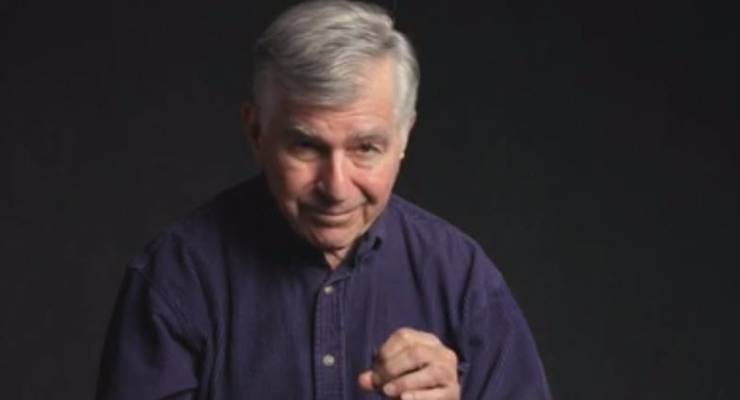
The holiday season has well and truly arrived in American New England. This week, pumpkins rotting on doorsteps were replaced by Christmas wreaths and twinkly lights. On the day President Donald Trump had “been looking very much forward to” — the traditional White House Christmas Tree lighting ceremony — we took my daughter to a similar, only slightly smaller event on the New Haven central green. We met Santa, and went on an ancient carousel that spun a little too fast and felt a little too rickety.
From the Green, I raced back up the hill to campus, just in time to get back on a different carousel — this one driven by 1988 Democratic presidential candidate Michael Dukakis. Invited by the Yale Hellenic Studies Program to speak on “bipartisanship in today’s political climate”, Dukakis spun from endearing and remarkable stories of how his mother, a Greek immigrant, managed to go to college, unchaperoned, in the 1920s; to southern Italian anarchists in the inter-war period; to the Korean War; to Charlottesville; to Nixon and Ted Kennedy and universal healthcare; up and down, round and round. What a ride.
Dukakis is 84 years old, and nearly three decades past his failed bid for the presidency. The loss of ’88 follows him everywhere, and he’s still apologising for it. He did, he said, a “terrible job” of responding to Bush’s attacks, and the country was still paying for it: “If you’d never had Bush I, you’d-a never heard of Bush II!” The weight of two Bushes. What a burden to bear.
Dukakis, though, carries it well. Genial and folksy, he spoke informally to a small audience of fewer than 100 people. “So, what about bipartisanship?” Dukakis’ own political career was marked by the nasty, partisan conflict that has characterised so much of American history. He spoke of Lincoln, and Jefferson, McCarthyism and Vietnam, noting that those who yearn for some golden age of political co-operation are pining for something that never really existed.
That doesn’t mean, though, that opportunities for bipartisanship don’t exist. Dukakis insisted that it is possible to build political consensus, and that without it, nothing gets done. But it takes time, and it requires considerable work building relationships. Healthcare is a good example: 93% of Americans, he said, support the idea of affordable healthcare for working people. While he didn’t wish to criticise the Obama administration (Obama got elected twice, he said; I couldn’t do it once), he was frustrated that the debate about healthcare focused on pre-existing conditions and keeping children on family plans, instead of capitalising on broad support for basic coverage for “working families”.
The message, Dukakis said, is important, and Democrats keep getting it wrong. He was aghast that his party, faced with “the most unbelievable piece of legislation I’ve ever seen in my life,” in the form of the tax bill currently before Congress, isn’t talking about “fiscal responsibility”. The focus, as Dukakis sees it, is on who gets a tax cut, rather than the economic irresponsibility of even talking about tax cuts when the US budget is $700 billion in deficit.
The numbers are indeed staggering — $700 billion, potentially increasing by $1 trillion under the new tax bill — but the “message” of “fiscal responsibility” Dukakis insisted on seemed to come from another era. It’s easy to forget that it was only a couple of years ago that Republicans and their Tea Party friends were screaming bloody murder over the national debt. Dukakis is not alone in wondering where they’ve gone.
But while an older generation of politicians might agree with him, I suspect the students in the room – and the “working families” he’d talked about earlier – are more worried about the substance of the legislation, which, for graduate students, would mean a devastating increase in their tax bill. How is bipartisanship possible in the context of such naked attacks?
It isn’t. And sometimes, as Dukakis emphasised, bipartisanship is dangerous. The political consensus that America should be the “world’s policeman”, as Dukakis put it, has been nothing short of disastrous for America and the world: 837 military bases across the globe and a US$1 trillion upgrade of America’s nuclear arsenal — policies supported by Trump and Obama — will not, have not, secured peace. Sometimes, bipartisanship is not your friend.
And in almost every area except foreign policy, genuine bipartisanship is difficult to come by. The 1980s, the 1860s, the 1910s — all were “terrible, terrible times” for bipartisanship in America. So, what do we do about it now, he asked? The short answer is, he’s not sure. He’s not alone. Up and down, round and round. What a ride.







Another of the best Presidents never had – Adlai Stevenson, George McGovern, even Howard “I have a scream” Dean.
How different the world might look now.
It’s worth listening to retired pollies, they tend to tell the truth.
…umm, the Rodent?